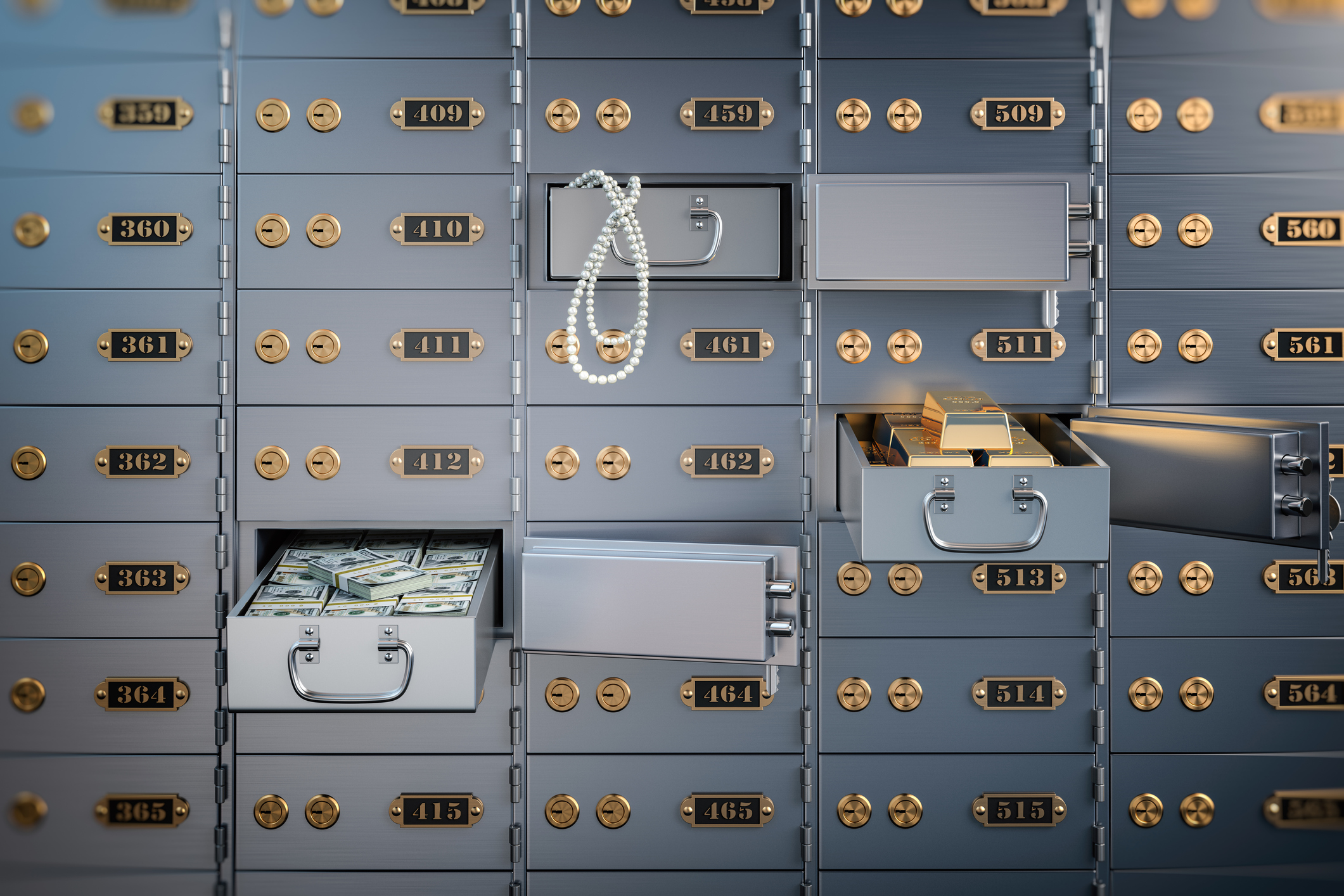
Profit and prosper with the best of Kiplinger's advice on investing, taxes, retirement, personal finance and much more. Delivered daily. Enter your email in the box and click Sign Me Up.
You are now subscribed
Your newsletter sign-up was successful
Want to add more newsletters?

Delivered daily
Kiplinger Today
Profit and prosper with the best of Kiplinger's advice on investing, taxes, retirement, personal finance and much more delivered daily. Smart money moves start here.

Sent five days a week
Kiplinger A Step Ahead
Get practical help to make better financial decisions in your everyday life, from spending to savings on top deals.

Delivered daily
Kiplinger Closing Bell
Get today's biggest financial and investing headlines delivered to your inbox every day the U.S. stock market is open.

Sent twice a week
Kiplinger Adviser Intel
Financial pros across the country share best practices and fresh tactics to preserve and grow your wealth.

Delivered weekly
Kiplinger Tax Tips
Trim your federal and state tax bills with practical tax-planning and tax-cutting strategies.

Sent twice a week
Kiplinger Retirement Tips
Your twice-a-week guide to planning and enjoying a financially secure and richly rewarding retirement

Sent bimonthly.
Kiplinger Adviser Angle
Insights for advisers, wealth managers and other financial professionals.

Sent twice a week
Kiplinger Investing Weekly
Your twice-a-week roundup of promising stocks, funds, companies and industries you should consider, ones you should avoid, and why.

Sent weekly for six weeks
Kiplinger Invest for Retirement
Your step-by-step six-part series on how to invest for retirement, from devising a successful strategy to exactly which investments to choose.
In this digital world, almost anything that matters is stored virtually in the cloud. To that end, a physical safe deposit box might seem like a relic of the bricks-and-mortar (and high-strength steel) past. However, don’t write off the value of keeping certain valuables securely tucked away in your bank’s vault (That is, if your existing bank has a safe deposit box vault — many are being eliminated.)
Some examples of things you can and should keep in a safe deposit box include prized possessions such as collectible baseball cards or jewelry inherited from a relative. A safe deposit box can also offer critical protection for important documents.
But a safe deposit box isn’t a wise choice for many things. There are items you might come to regret locking away in your bank, which isn’t open nights, holidays or perhaps even weekends.
Access to contents is limited
Access to your safe deposit box could be even more limited during emergencies, including natural disasters (which could even threaten the bank and box itself, depending on where you live). The coronavirus pandemic, too, reduced operating hours for some bank branches, and limited access or required appointments for in-branch services, such as access to safe deposit boxes. Such circumstances complicate your ability to retrieve important documents or items when you need them — the answer is to create a financial plan for natural disasters beforehand.
Experts recommend storing important items that you need to access more frequently or on short notice in a fireproof home safe that’s bolted to the floor. But what are those items? Read on for our list of safe deposit box no-nos.
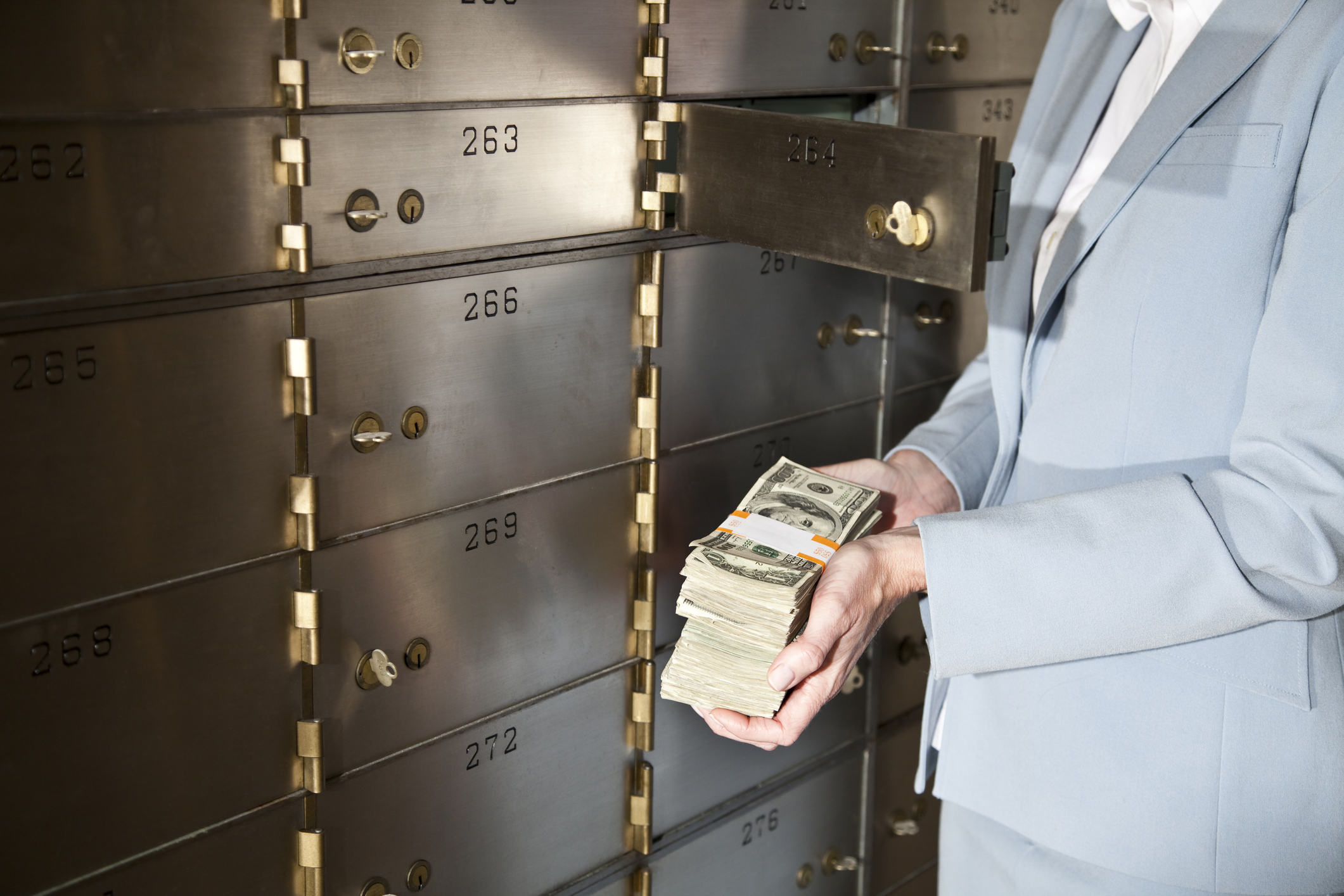
1. Keeping cash in a safe deposit box
Perhaps you're old-school and like to keep a stash of cash at home “just in case.” Or maybe you got lucky at the casino. Would storing it in a safe deposit box be a better move? Experts warn there are several reasons you shouldn’t keep cash in a safe deposit box:
• If you need cash in an emergency but the bank is closed, you’re out of luck
• Cash money doesn't make money. Idle cash loses buying power over time due to
the effects of inflation. It’s better to put the money in a high-yield savings account
or a CD
• Some banks expressly forbid storing cash in a safe deposit box. Make sure to read
the fine print of your agreement
Bear in mind, too, that cash in a safe deposit box isn’t protected by the Federal Deposit Insurance Corporation (FDIC), says Luke W. Reynolds, San Francisco Community Affairs Regional Manager and former chief of the FDIC’s Community Outreach Section.
To receive FDIC insurance, which covers up to $250,000 per depositor per insured bank, your cash needs to be deposited in a qualifying deposit account such as a checking account, savings account or certificate of deposit. The bank that houses the safe deposit box will be happy to hold your cash in an account and maybe even give you a smidgen of interest on it.
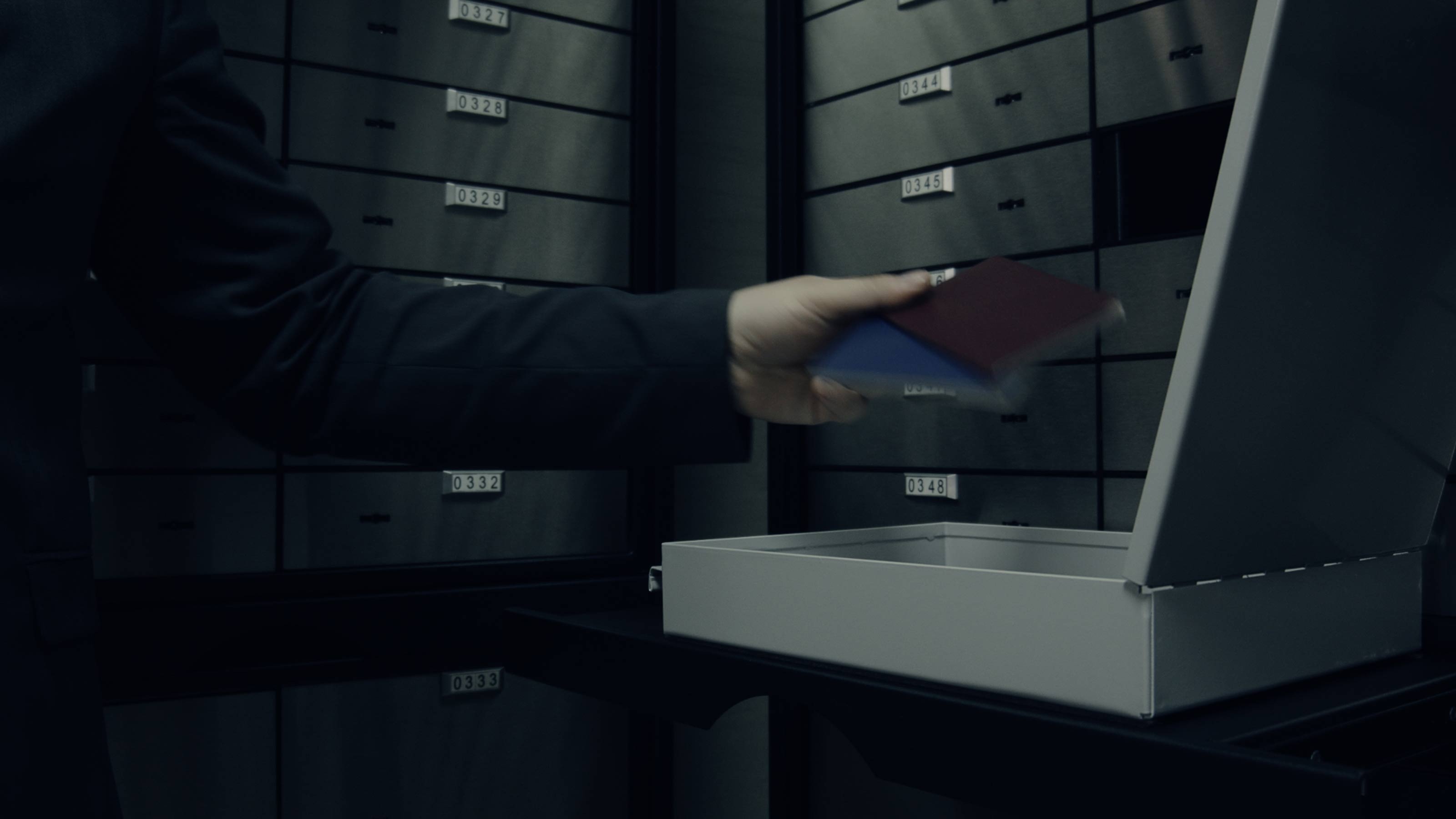
2. Keeping your passport in a safe deposit box
Unless you’re a global business executive or a social media influencer who travels for clicks, you probably don’t need your passport at hand 24/7. So it’s tempting, you think, for security reasons, to store your precious passport in a safe deposit box where it won’t get lost, damaged or stolen. Our advice: Don’t.
A planned trip is one thing, but emergency trips by their nature are unplanned and inevitably arise during non-banking hours. A child getting sick while studying abroad or a parent suffering an accident while on an international cruise could spark a scramble to leave the country on short notice.
Or this: You get lucky and find a fantastic deal on a last-minute trip to Europe. It’s after 5 p.m. on a Friday, the flight is Sunday evening and your bank doesn’t reopen until Monday. If your passport is stored there in a safe deposit box, you’re out of luck. It’s best to keep it secured in a home safe.
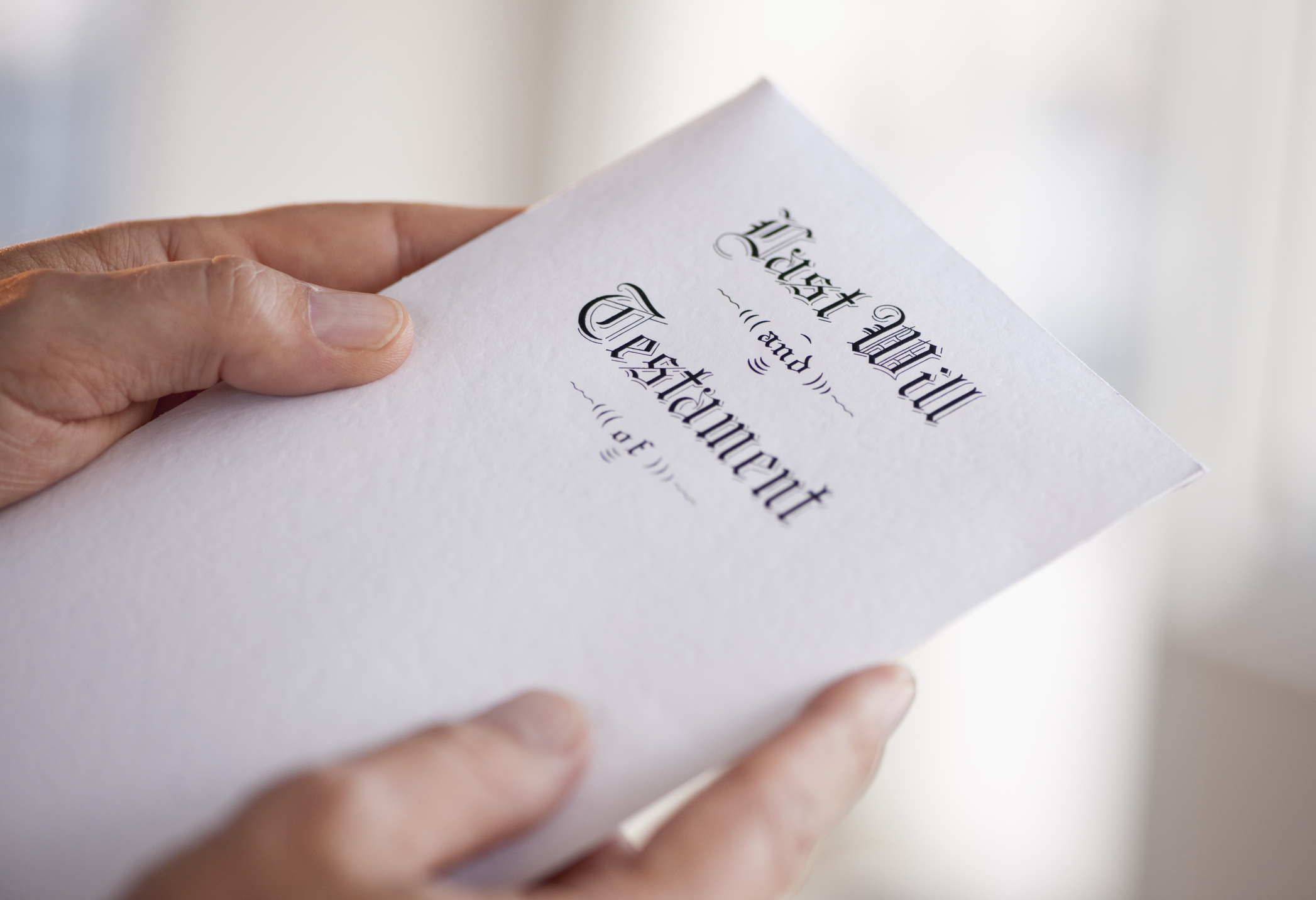
3.Keeping the original copy of your will in a safe deposit box
Keeping copies of your own will, your spouse’s will and any wills in which you’re named the executor locked in a safe deposit box is a smart move. However, do not store the original version of your will there — especially if you’re the sole owner of the safe deposit box. Here’s why: After your death the bank will seal the safe deposit box until an executor can prove he or she has the legal right to access it. This could lead to long and potentially costly delays before your will is executed and your heirs receive their inheritances.
Rather, keep the original copy of your will with your attorney or somewhere else where your executor can access it without jumping through legal hoops. Again, store copies of your will in your safe deposit box for backup.

4. Keeping your final letters of instruction in a safe deposit box
Letters of instruction are vitally important for your estate. Leaving a letter of instruction to go along with your will is a smart estate-planning move. The letter can outline such things as wishes for medical care or, when you die, whether you want to be cremated or buried, and what kind of memorial service, if any, you’d like to have. The level of detail is up to you. Also, a letter of instruction can include details on specific bequests — brother Larry gets your “Star Wars” memorabilia, cousin Kathleen gets your great-grandfather's ring you inherited, and so on.
But, if your letter of instruction is sealed inside a safe deposit box that no one but you can access, then your final wishes might not be granted.
Keep the letter of instruction with your original will — again, not in a safe deposit box. Experts recommend sending dated copies of the letter to anyone who is designated to receive a specific bequest.
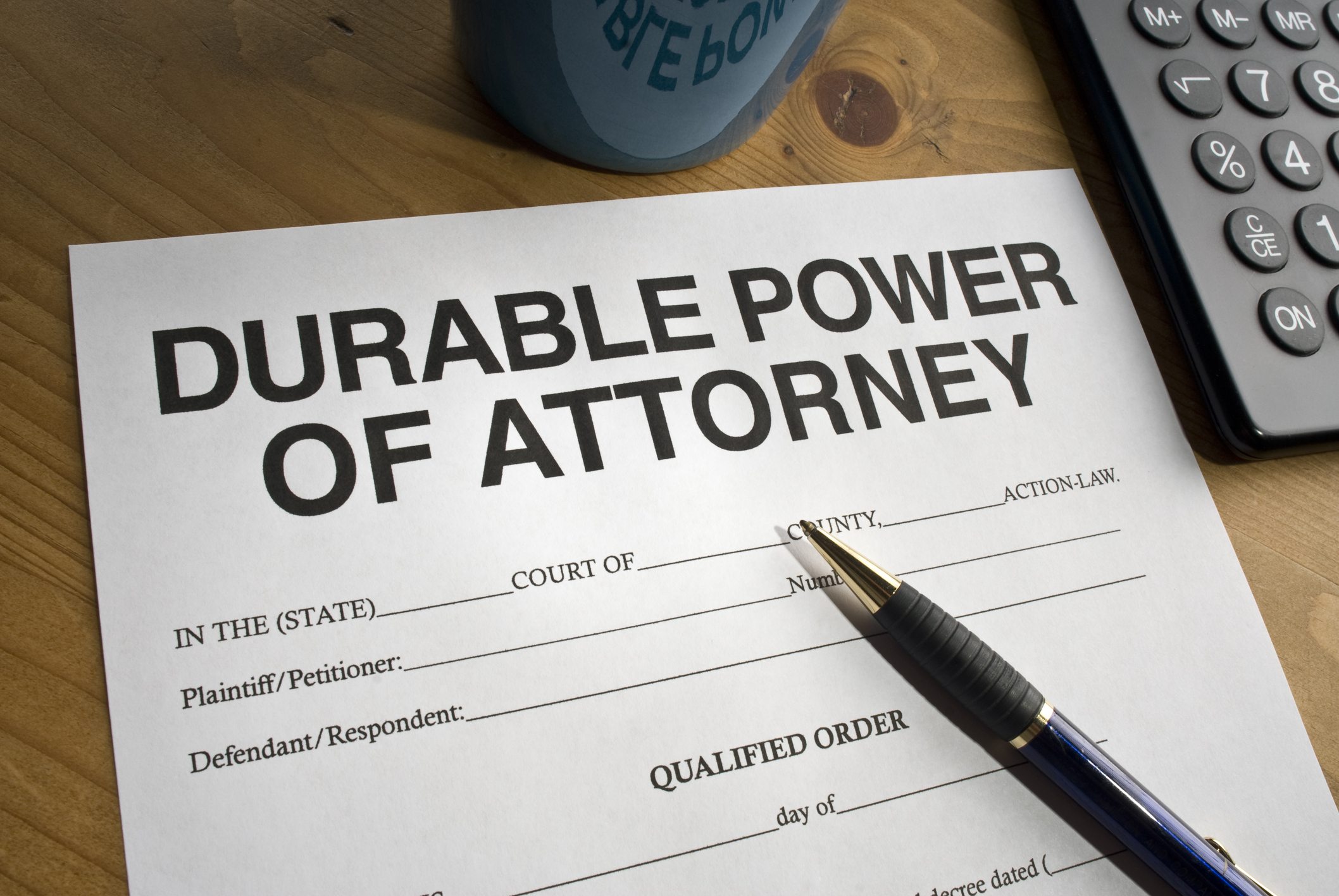
5. Keeping your durable power of attorney (POA) In a safe deposit box
You don’t even have to die to run into trouble keeping documents in a safe deposit box. Let’s say you’ve been good about getting life’s important legal paperwork signed, sealed and delivered. One of those documents is a durable power of attorney (POA), which gives authority to a third party to act on your behalf should you become incapacitated or somehow unable to handle your legal and financial affairs.
However, if that POA is locked away in a safe deposit box that no one but you can access, then the person you are counting on to protect you at your time of need could find his or her hands tied. Keep the original POA with the original copy of your will, and provide copies to those who may one day need them.

6. Keeping advance directives for health care in a safe deposit box
Two documents are indispensable when it comes to estate planning and your health: A living will and a health care proxy. These documents are sometimes referred to collectively as advance directives, but each serves a unique purpose.
A living will states your wishes for end-of-life care: Do you want a ventilator or feeding tube used to keep you alive? Do you want to be resuscitated if your heart stops? Without a living will, doctors are obligated to take extraordinary (and perhaps unwanted) steps to save you.
A health care proxy, also known as a health care power of attorney, designates someone to make medical decisions for you in the event you can’t make them for yourself.
Neither document will do you much good locked away in an inaccessible safe deposit box. Make sure your medical providers, family members and healthcare team have copies on hand.
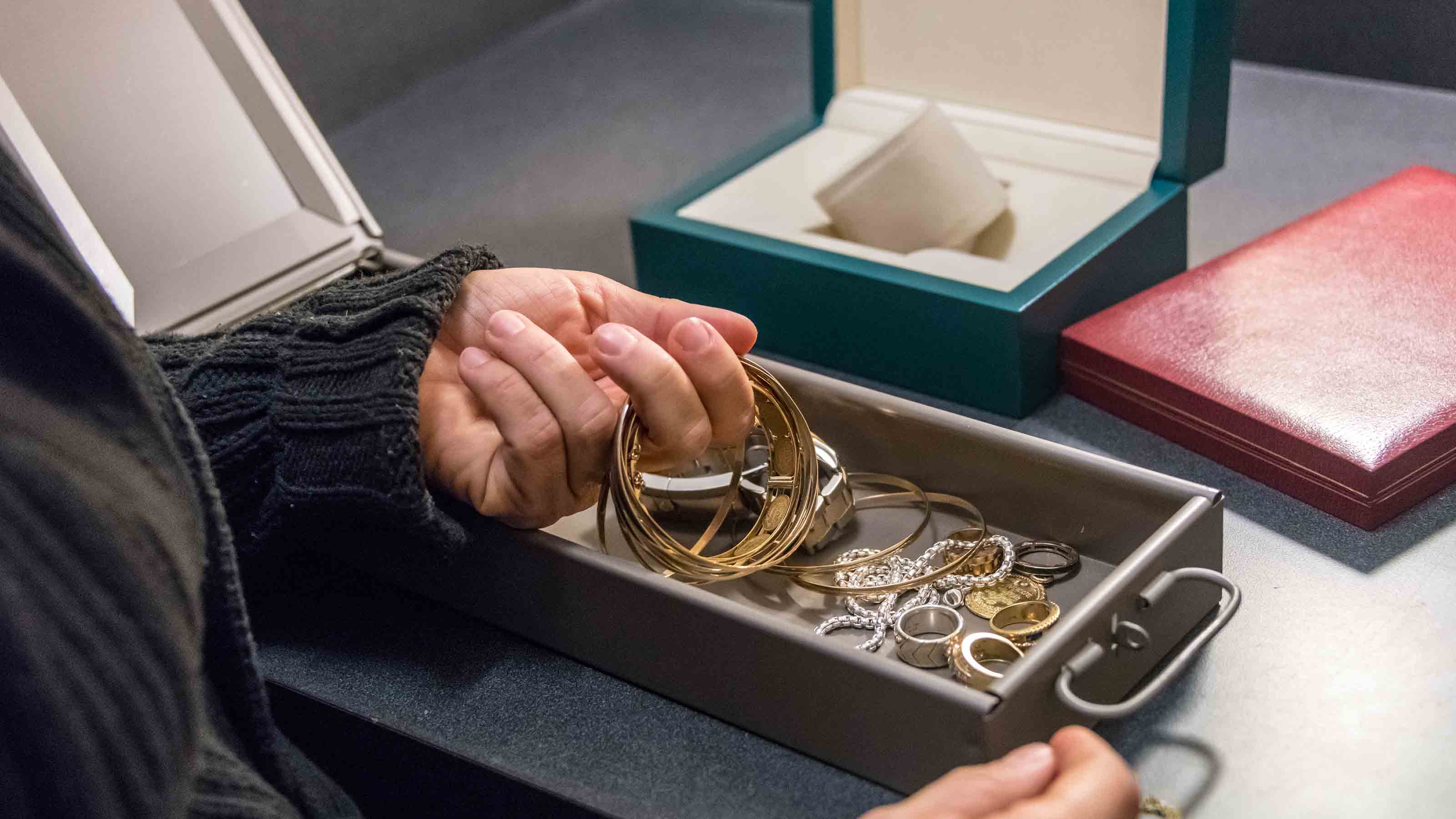
7. Keeping uninsured jewelry and collectibles in a safe deposit box
Heirloom jewelry from the grandparents, the wedding band from your first marriage, rare coins and similar valuables are good candidates for a safe deposit box, but only if they’re properly insured. The FDIC doesn’t insure the contents of a safe deposit box, nor does the bank itself unless otherwise stated in your agreement. Wells Fargo, for example, explicitly states that box contents aren’t insured and advises box owners to “purchase an appropriate policy from the insurance company of your choice.”
And there have been noteworthy disappearances from safe deposit banks, especially after banks change owners, sometimes multiple times. One owner of a safe deposit box had a heart-dropping experience when he opened a bank box he had maintained for years, storing a prized collection of valuable watches. One day, they were gone. As the New York Times noted in its coverage of that loss: "There are no federal laws governing the boxes; no rules require banks to compensate customers if their property is stolen or destroyed."
Standard homeowners insurance offers some coverage for personal property kept off-premises, but limits are typically low for valuables such as jewelry and collectibles. One option is to contact your insurer to see if the limits can be raised. Also, consider what’s called a personal articles floater, a supplemental policy that provides added coverage for specified valuables. You’ll likely need to get the items “scheduled,” which means providing original receipts and/or written appraisals. It’s a good idea to keep appraisals up to date for items that fluctuate widely in value. Be sure to take photos, too, in case you ever need to file a claim.
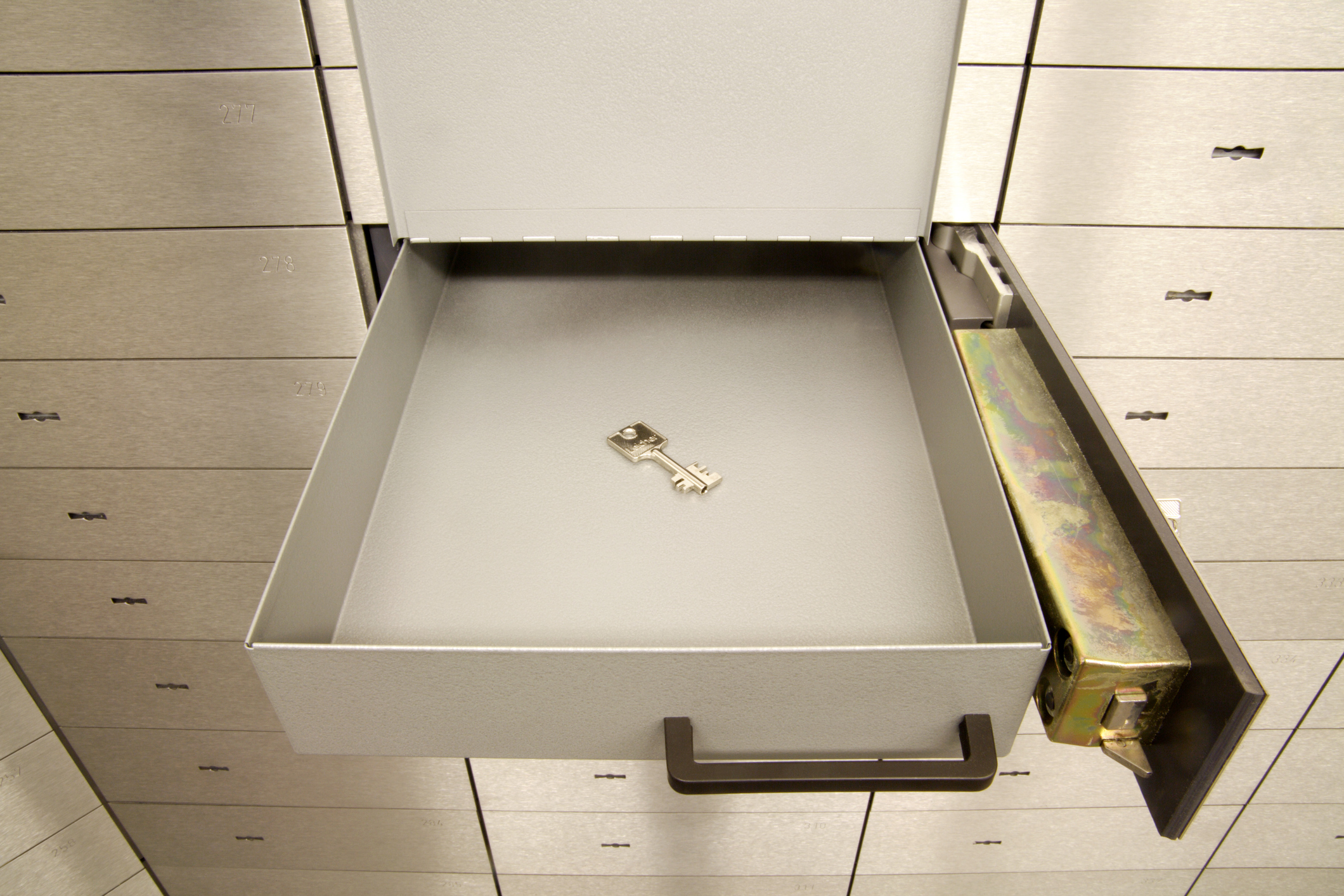
8. Keeping spare keys in a safe deposit box
A spare key is one of the worst things to keep in your wallet. If your wallet is ever lost or stolen, the key combined with the address on your driver’s license is an open invitation to thieves to ransack your home.
Keeping a spare house key in a safe deposit box is also a bad idea, albeit for different reasons. Think about it: You only have access to your safe deposit box during normal banking hours — and only if you have the box’s key with you. If you’re like most people, your safe deposit box key is squirreled away somewhere inside your home…from which you’re currently locked out.
Save yourself the aggravation and leave a spare key with a trusted neighbor (or two) or a nearby relative.
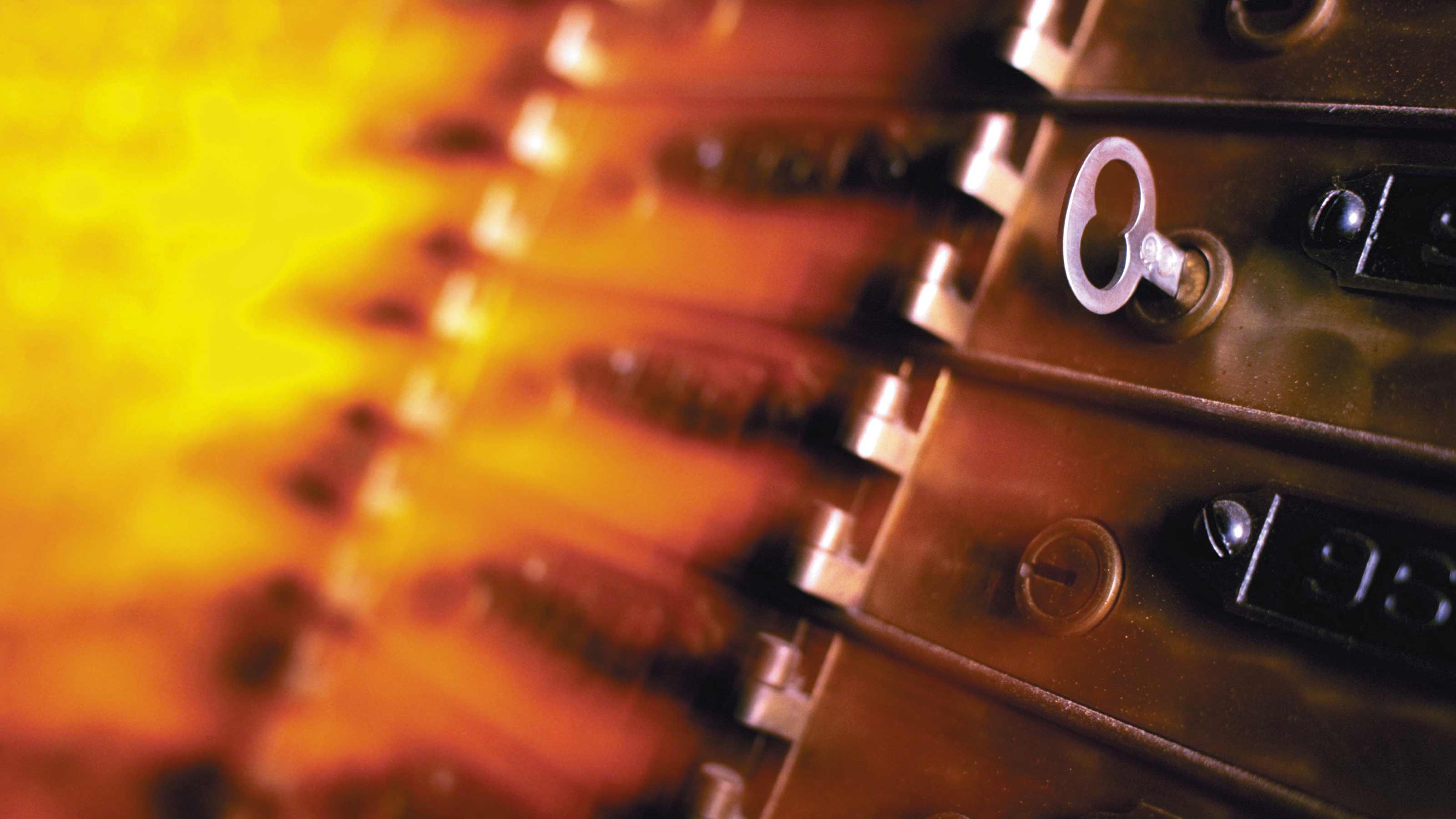
9. Keeping liquids and illegal or dangerous items in a safe deposit box
Your financial institution will likely have a list of what isn’t permissible to keep in a safe deposit box. Pay attention. Weapons, including firearms, typically aren’t allowed, nor are explosives. The same goes for illicit drugs and hazardous materials. Figure anything illegal or dangerous is off limits, and really: Why would you take that to a bank in the first place?
Use common sense, but remember that different banks might have different rules, so read the fine print of your bank’s safe deposit box agreement.
Many, if not all, do not allow liquids of any kind to be stored in your safe deposit box so that decades-old bottle of rare whiskey should stay at your house. Where it belongs. In a glass.
If you’re still in doubt about what cannot be kept in a safe deposit box, ask your friendly banker for clarification.
Profit and prosper with the best of Kiplinger's advice on investing, taxes, retirement, personal finance and much more. Delivered daily. Enter your email in the box and click Sign Me Up.

Bob was Senior Editor at Kiplinger.com for seven years and is now a contributor to the website. He has more than 40 years of experience in online, print and visual journalism. Bob has worked as an award-winning writer and editor in the Washington, D.C., market as well as at news organizations in New York, Michigan and California. Bob joined Kiplinger in 2016, bringing a wealth of expertise covering retail, entertainment, and money-saving trends and topics. He was one of the first journalists at a daily news organization to aggressively cover retail as a specialty and has been lauded in the retail industry for his expertise. Bob has also been an adjunct and associate professor of print, online and visual journalism at Syracuse University and Ithaca College. He has a master’s degree from Syracuse University’s S.I. Newhouse School of Public Communications and a bachelor’s degree in communications and theater from Hope College.
-
 Stocks Sink With Alphabet, Bitcoin: Stock Market Today
Stocks Sink With Alphabet, Bitcoin: Stock Market TodayA dismal round of jobs data did little to lift sentiment on Thursday.
-
 Betting on Super Bowl 2026? New IRS Tax Changes Could Cost You
Betting on Super Bowl 2026? New IRS Tax Changes Could Cost YouTaxable Income When Super Bowl LX hype fades, some fans may be surprised to learn that sports betting tax rules have shifted.
-
 How Much It Costs to Host a Super Bowl Party in 2026
How Much It Costs to Host a Super Bowl Party in 2026Hosting a Super Bowl party in 2026 could cost you. Here's a breakdown of food, drink and entertainment costs — plus ways to save.
-
 States That Tax Social Security Benefits in 2026
States That Tax Social Security Benefits in 2026Retirement Tax Not all retirees who live in states that tax Social Security benefits have to pay state income taxes. Will your benefits be taxed?
-
 What to Do With Your Tax Refund: 6 Ways to Bring Growth
What to Do With Your Tax Refund: 6 Ways to Bring GrowthUse your 2024 tax refund to boost short-term or long-term financial goals by putting it in one of these six places.
-
 What Does Medicare Not Cover? Eight Things You Should Know
What Does Medicare Not Cover? Eight Things You Should KnowMedicare Part A and Part B leave gaps in your healthcare coverage. But Medicare Advantage has problems, too.
-
 12 Great Places to Retire in the Midwest
12 Great Places to Retire in the MidwestPlaces to live Here are our retirement picks in the 12 midwestern states.
-
 15 Cheapest Small Towns to Live In
15 Cheapest Small Towns to Live InThe cheapest small towns might not be for everyone, but their charms can make them the best places to live for plenty of folks.
-
 15 Reasons You'll Regret an RV in Retirement
15 Reasons You'll Regret an RV in RetirementMaking Your Money Last Here's why you might regret an RV in retirement. RV-savvy retirees talk about the downsides of spending retirement in a motorhome, travel trailer, fifth wheel, or other recreational vehicle.
-
 The 24 Cheapest Places To Retire in the US
The 24 Cheapest Places To Retire in the USWhen you're trying to balance a fixed income with an enjoyable retirement, the cost of living is a crucial factor to consider. Is your city the best?
-
 The Six Best Places to Retire in New England
The Six Best Places to Retire in New Englandplaces to live Thinking about a move to New England for retirement? Here are the best places to land for quality of life, affordability and other criteria.

